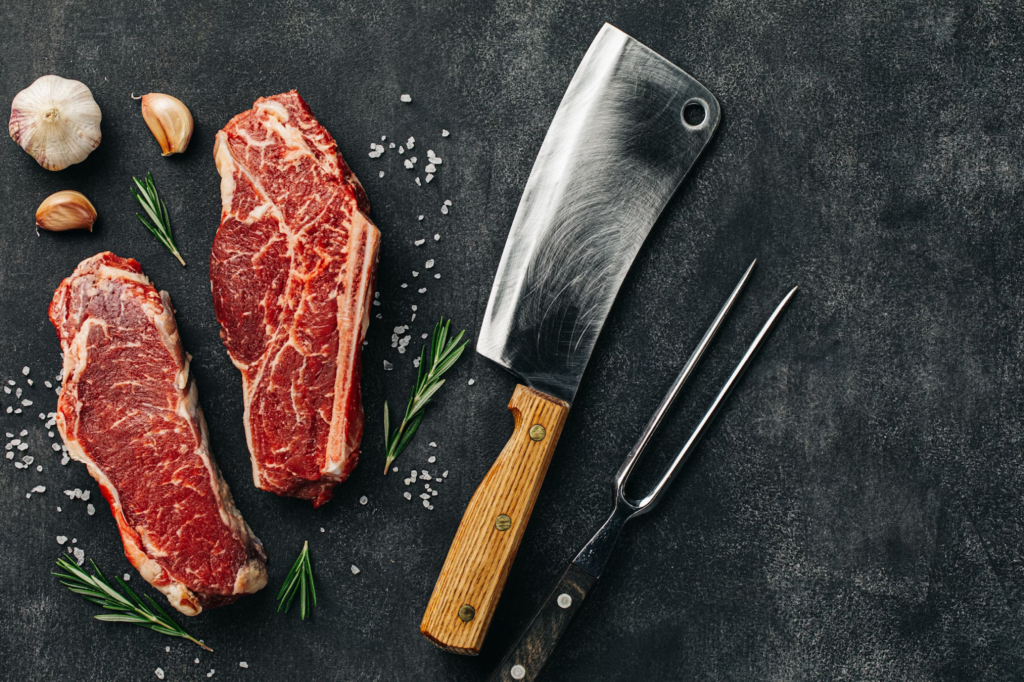
In the realm of culinary excellence, the choice of meat supplier can make or break your dishes. Finding the ideal meat supplier goes beyond a mere transaction – it’s about establishing a reliable partnership that guarantees quality, consistency, and ethical sourcing. So, here are six expert-backed strategies that will empower you to secure the perfect meat supplier for your culinary endeavors.
1. Define Your Requirements
Before embarking on the quest for your ideal meat supplier, define your specific requirements. Determine the types and cuts of meat you need – boudin, steaks, minced meat, and more – your volume demands, and any special considerations such as organic or locally sourced options. To start, you can research boudin near me online to find a supplier for this specific type of meat. This clarity will not only streamline your search but also enable potential suppliers to understand and meet your unique needs. Specialized suppliers can offer higher-quality meat as they often focus on specific niches, allowing them to perfect their craft, maintain stringent quality standards, and provide a level of expertise that translates directly into the exceptional flavors and textures discerning chefs and food enthusiasts crave.
2. Research and Vetting
Invest time in thorough research and vetting of potential meat suppliers. Look beyond the surface and delve into their reputation, client testimonials, and industry certifications. Seek suppliers who align with your values, whether it’s a commitment to sustainable practices, humane treatment of animals, or adherence to quality standards. The more informed your decision, the higher the likelihood of a long-lasting and mutually beneficial partnership.
3. Quality Assurance
Quality is non-negotiable in the world of culinary arts. Ensure your prospective meat supplier adheres to stringent quality control measures. This includes inspecting their processing facilities, understanding their sourcing practices, and, if possible, sampling their products. Don’t compromise on quality, as it forms the foundation of your culinary creations and the satisfaction of your patrons.
For those curious about the preparation of beef jerky, you might want to explore more about is beef jerky cooked to understand its cooking process and safety considerations.
Facility Inspection
Conduct a thorough on-site inspection of the supplier’s processing facilities. Ensure they meet industry standards for cleanliness, hygiene, and overall safety. A well-maintained facility is indicative of a supplier committed to delivering products of the highest quality.
Sourcing Practices Scrutiny
Scrutinize the sourcing practices employed by the meat supplier. Ethical and sustainable sourcing not only aligns with modern consumer preferences but also reflects a commitment to responsible business practices. Request information on the origin of their meat products, ensuring they meet your standards for humane treatment and environmental responsibility.
Product Sampling
Whenever possible, request product samples from the supplier. This hands-on approach allows you to assess the flavor, texture, and overall quality of their meat products. Sampling is a tangible way to validate the supplier’s claims and ensure that the delivered products meet the taste and quality standards expected by your clientele.
Quality Certifications
Verify that the meat supplier holds relevant quality certifications in the industry. Certifications such as HACCP (Hazard Analysis Critical Control Points) and USDA (United States Department of Agriculture) approval indicate a commitment to maintaining high standards in food safety and quality.
4. Transparent Communication
Effective communication is key to any successful partnership. Establish clear and transparent communication channels with your potential meat supplier. Discuss your expectations, delivery schedules, and contingency plans for unforeseen circumstances. A supplier who values open communication ensures that you are always in the loop and can trust in the reliability of their services.
5. Pricing and Contracts
While cost is a crucial factor, it’s equally important to understand the value you receive for your investment. Negotiate fair pricing structures that align with your budget without compromising on quality. Additionally, ensure that all terms and conditions are explicitly outlined in a comprehensive contract. Clarity in pricing and contractual agreements lays the foundation for a harmonious and long-term partnership.
Value Assessment
Before finalizing any agreement, assess the value proposition offered by the meat supplier. Consider factors beyond the raw cost, such as delivery reliability, consistency in product quality, and additional services or benefits provided. Understanding the overall value ensures that you are not only meeting your budgetary constraints but also receiving a worthwhile return on your investment.
6. Flexibility and Scalability
As your culinary venture grows, so too should your meat supplier be able to scale with you. Opt for a supplier that offers flexibility in adjusting to fluctuating demand and can accommodate your evolving needs. A supplier’s ability to scale operations without compromising on quality ensures a seamless partnership that can withstand the test of time.
Securing your ideal meat supplier is a strategic decision that directly impacts the success of your culinary endeavors. By defining your requirements, conducting thorough research, prioritizing quality assurance, fostering transparent communication, negotiating fair contracts, and ensuring scalability, you empower yourself to forge a partnership that elevates the quality and consistency of your dishes.












